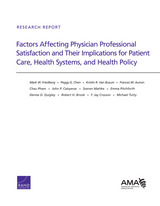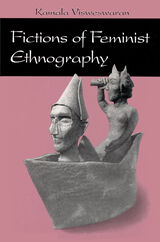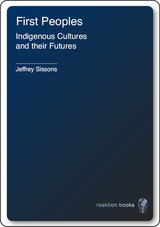10 start with F start with F




Ziegler interviewed more than 250 people as she followed flowers along the full length of the commodity chain, from cuttings in Europe and Latin America to vases in and around New York. She examines the daily experiences of flower growers in the Netherlands and Ecuador, two leading exporters of flowers to the United States. Primary focus, though, is on others in the commodity chain: exporters, importers, wholesalers, and retailers. She follows their activities as they respond to changing competition, supply, and consumer behavior in a market characterized by risk, volatility, and imperfect knowledge. By tracing changes in the wholesale and retail systems, she shows the recent development of two complementary commodity chains in New York and the United States generally. One leads to a high-end luxury market served by specialty florists and designers, and the other to a lower-priced mass market served by chain groceries, corner delis, and retail superstores.


Can a good school help its students overcome the adverse effects of economic disadvantage and family adversity? Recent educational assessment suggests that the answer may be a painful no. Here, however, is a book that contradicts the prevailing pessimism about the possibilities of education. In Fifteen Thousand Hours, Michael Rutter and his colleagues show conclusively that schools can make a difference.
In a three-year study of a dozen secondary schools in a large urban area, Rutter's team found that some schools were demonstrably better than others at promoting the academic and social success of their students. Moreover, there were clear and interesting differences between the schools that promote success and the schools that promote failure. As Rutter shows, these differences provide important clues to the kind of educational reform that might allow inner-city schools to act more uniformly as a positive and protective influence on students who must grow up in an otherwise disordered and difficult world.
For a dozen years during their formative period of development, children spend as many of their working hours at school as at home—some 15,000 hours in all. To suggest that this tremendous amount of time has no effect on development seems irrational. To settle for schools that simply act as institutions of containment for disadvantaged children seems a strategy of despair. The importance of this major book in education is its clear demonstration that these are not the only alternatives.

Combining over forty years of experience as a practicing psychiatrist with an insider’s perspective of current psychiatric practice, Dr. Robert Taylor provides invaluable guidance to persons considering psychiatric treatment or contemplating a change of doctor in an effort to find better treatment. Cautioning readers against settling for a psychiatrist who views psychodrugs as the treatment, Dr. Taylor provides specific suggestions for avoiding the growing number of psychiatrists who write scripts automatically.
In recent decades, psychiatric care has been overly reliant on psychodrugs. Patient diagnoses are being seriously questioned. Finding the Right Psychiatrist encourages people to seek care from a complete psychiatrist—one able and willing to pursue matters of mind and brain/body, rather than settling on psychodrugs as the main treatment.
Throughout the book, readers learn about the proper uses and limits of psychiatric diagnosis. Dr. Taylor carefully outlines an individualized approach to psychiatric care guided more by a patient’s particular problems and situation than by diagnoses that often mislead more than help. He provides a realistic appraisal of psychiatric medications: what they can and cannot do as well, a discussion of mind work tools, traits of effective psychiatrists, suggestions for how to deal with common insurance company obstacles, and an explanation of the confusing politics of psychiatry.
An indispensable resource for anyone seeking psychiatric help or tasked with advising someone of what to look for in a doctor, Finding the Right Psychiatrist gives hope and guidance to those searching for complete and personalized care.
View a three minute video of Dr. Robert L. Taylor speaking about Finding the Right Psychiatrist.

First Peoples explores how, instead of being absorbed into a homogeneous modernity, indigenous cultures are actively shaping alternative futures for themselves and appropriating global resources for their own culturally specific needs. From the Inuit and Saami in the north to the Maori and Aboriginal Australians in the south to the American Indians in the west, Sissons shows that for indigenous peoples, culture is more than simply heritage-it is a continuous project of preservation and revival.
Sissons argues that the cultural renaissances that occurred among indigenous peoples during the late twentieth century were not simply one-time occurrences; instead, they are crucial events that affirmed their cultures and re-established them as viable political entities posing unique challenges to states and their bureaucracies. He explores how indigenous peoples have also defined their identities through forged alliances such as the World Council of Indigenous Peoples and how these allied communities have created an alternative political order to the global organization of states.
First Peoples is a groundbreaking volume that vigorously contends that indigenous peoples have begun a new movement to solve the economic and political issues facing their communities, and they are doing so in unique and innovative ways.


READERS
Browse our collection.
PUBLISHERS
See BiblioVault's publisher services.
STUDENT SERVICES
Files for college accessibility offices.
UChicago Accessibility Resources
home | accessibility | search | about | contact us
BiblioVault ® 2001 - 2024
The University of Chicago Press









